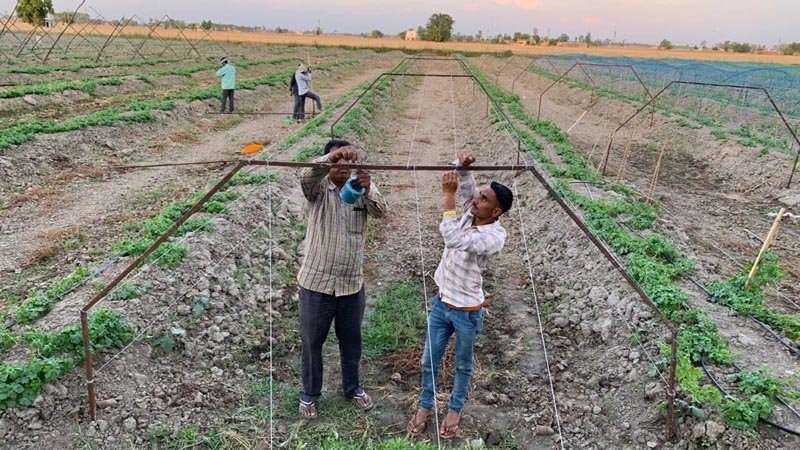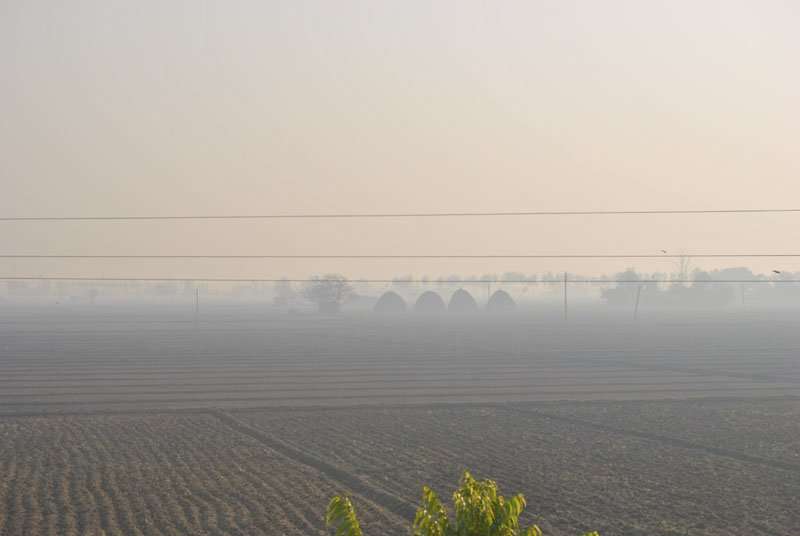As mentioned in the previous section, a type of land cultivation geared to short-term profit maximisation does not take into account the regenerative capacity of the soil, the microorganisms that are so important for maintaining fertility and the scarce groundwater reserves.
If one drives through northern India, one often notices fields that are sometimes several metres below the general ground level. The field margins look like natural clay walls. How does this unusual sight come about? If the fields hardly produce any fruit due to intensive irrigation plus excessive use of fertilisers, a drastic measure is taken. The only remedy is to remove the topsoil. About one meter is dug off, the mostly very loamy part is further processed in local brickworks. Humus parts disappear so simply, with all the consequences resulting from it. In the meantime, the field is being cultivated one storey lower, so to speak, until this layer of soil is also leached out, a vicious circle.


Kirpal Sagar uses light tractors to limit soil compaction. A closed-loop system with crop rotation minimises the use of fertiliser. Grain straw is not burned in the field as usual but used for bedding in the barn. Manure and slurry from buffalos and dairy cows are fed to the biogas plant, which composts the remains with other organic waste such as straw.
The humus cover is strengthened by compost. In this way the nutrients return to the soil in a form that is difficult to dissolve and are not so easily carried away by the monsoon rain. In northern India, irrigation is traditionally strong. Above all rice is very in need of water. Electric pumps are widely used, which has led to a dangerous drop in the groundwater level. In the meantime, drip irrigation is increasingly used in vegetable cultivation in Kirpal Sagar. Field margins are planted with trees, individual fields are covered with trees. Plants that require a lot of water, such as rice, are only cultivated in the quantities necessary for the farmers’ own supply.
In 2023 a sewage plant is installed, cleaning all waste water from Kirpal Sagar.
Of course, the measures do not work overnight. Long breath and stamina are necessary.
